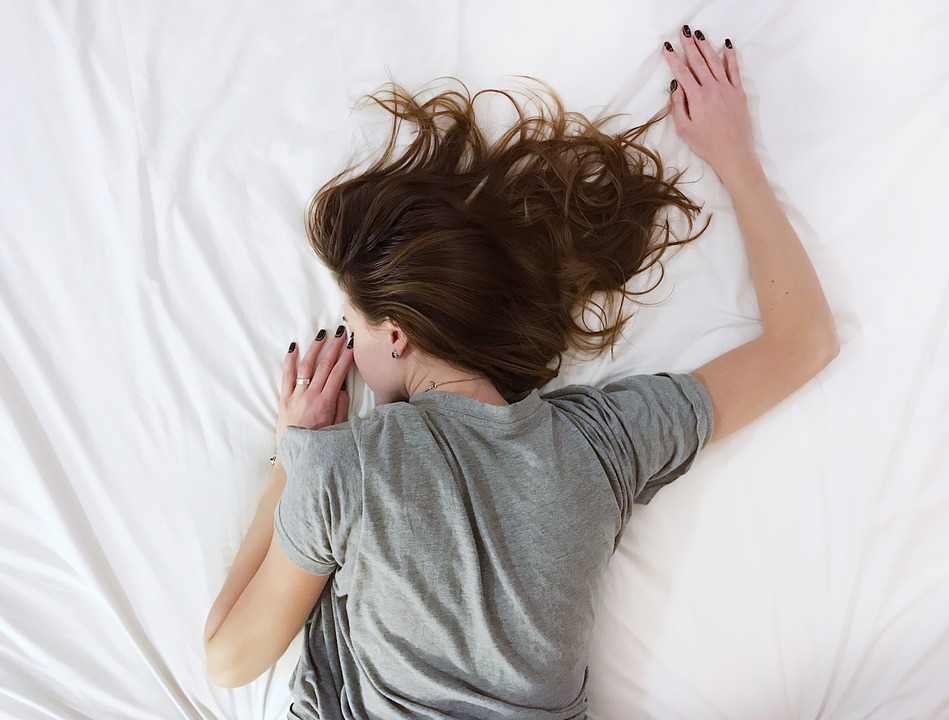Almost everyone has had the experience of struggling to stay awake in class, or dragging themselves to school feeling like a zombie. And most people know that it’s because they aren’t sleeping as much as they should.
Over one-third of Americans aren’t getting enough sleep, and while the average high school student sleeps for about seven hours a night, that is much less than the National Sleep Foundation’s suggested amount. “Most teenagers should be sleeping about nine hours a day,” Nurse Jeanne says. “And there’s a difference between being in bed and sleeping.”
There are many factors that contribute to why high school students are often tired. Schoolwork is the most often-stated reason, and having many activities cuts down on the time students have available to do homework other than late at night.
Nurse Jeanne adds that social media is a big element interfering with getting a good night’s sleep. She would suggest turning off electronics after about 9:30 p.m., to avoid the temptation to keep looking at your Snapchat feed, and the Centers for Disease Control and Prevention (CDC) says that you should remove all electronics from your bedroom. Electronics emit blue light, which only occurs naturally during the day. So your computer is tricking your brain into thinking that it’s daytime. Blue light also suppresses the production of melatonin, one of the hormones that induces sleep.
Not sleeping enough has many negative effects on life in general. When you’re tired, you’re likely to be more cranky, your brain works more slowly, and you are more prone to injuries. Sleep deprivation also has a big effect on your health. According to the UK National Health Service, sleep boosts the immune system, so people who aren’t getting enough sleep on a regular basis are much more likely to get sick. Mental health is also profoundly affected, and emotional well-being tends to decrease. And Nurse Jeanne adds that motor skills and reflexes are greatly impaired after constantly “under-sleeping.”
While there’s a temptation to get as much extra sleep as possible, “catching up” on sleep over the weekend isn’t always the best idea, since sleeping late on weekends can throw your circadian rhythm off. Nurse Jeanne says that when “people sleep late on Saturday and Sunday, they end up wondering why they can’t fall asleep on Sunday night.” Instead, the CDC suggests adding about half an hour of sleep each evening, until you feel you are getting enough. That way your body has a chance to slowly change its rhythm, rather than doing it all in one jolt. And Nurse Jeanne notes that it’s not just the amount of sleep you get, but also the quality.
However, sometimes sleep is affected by factors completely out of your control. While you can choose to start your homework earlier and be more focused, sometimes the reason you aren’t sleeping well has nothing to do with sleep habits. Studies at the National Sleep Foundation show that sometimes medications, overall health, and illness impact how well you sleep.
There are some things you can do to improve the quality of your sleep. Since it takes time for the brain to slow down, not exercising for at least an hour before bed and limiting exposure to blue light before going to sleep let your body know that it’s time to calm down. If you have to be on a computer shortly before bed, there are screen covers that cut the blue waves and apps that shift the colors on the screen towards warmer yellows. If possible, try to go to sleep and wake up consistently within a range of about two hours every day.
According to Nurse Jeanne, because being tired impacts so many aspects of life, “sleep is the most important part of your health and well-being.”
Carmen Miller


































































